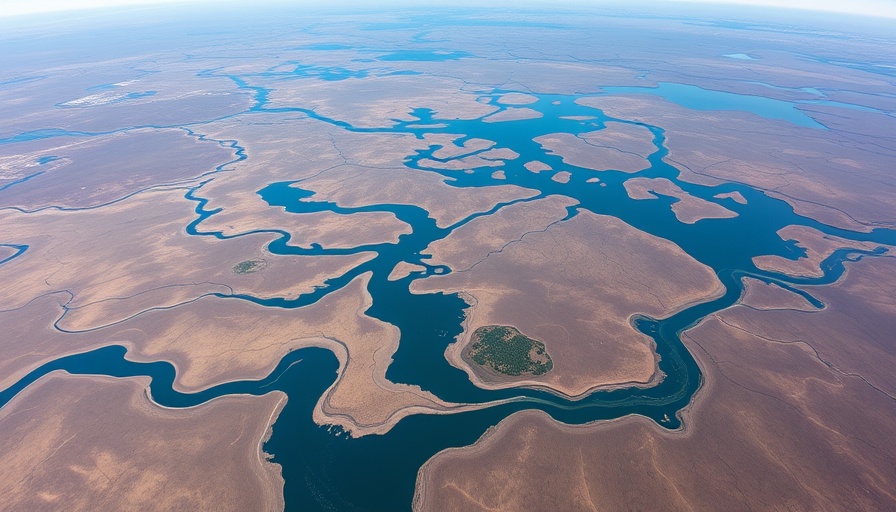
New Policy Changes Opening Alaska's Wildlands to Drilling
In a significant policy shift, U.S. Secretary of the Interior Doug Burgum has announced a reversal of drilling restrictions in the National Petroleum Reserve (NPR-A) located in northwest Alaska. This vast, wild landscape covering approximately 23 million acres—home to endangered species like polar bears, caribou, and migratory birds—will be opened to oil and gas drilling operations.
The Environmental Impact and Community Concerns
The proposed changes have sparked outrage among environmentalists and Indigenous groups, who fear the consequences of increased industrial activity in such an ecologically sensitive area. Kristen Miller, the executive director of the Alaska Wilderness League, stressed the potential dangers this rollback poses to wildlife and local Indigenous communities relying on these lands for subsistence practices, such as hunting and fishing. “These lands are vital not only for biodiversity but also for our culture,” she noted, highlighting the vital role of the Teshekpuk caribou herd's habitat, which is threatened by drilling activities.
Supporting Arguments for Drilling
Supporters of the shift argue that the NPR-A was established to enhance America's energy security through responsible management of domestic resources. Energy Secretary Chris Wright emphasized the importance of energy independence, claiming the reversal addresses “unnecessary barriers” that inhibit progress. Republican Senator Dan Sullivan characterized previous restrictions as an egregious attack on energy development, marking the Biden administration's regulations as contrary to national interests.
Balancing Energy Needs with Environmental Conservation
This controversy highlights a critical tension within U.S. energy policy: the need for energy independence versus the imperative for environmental protection. As the U.S. grapples with climate challenges and aims to enhance renewable resources, decisions about fossil fuel extraction in sensitive ecosystems like the NPR-A become even more contentious.
Future Implications of New Drilling Regulations
With the future of the NPR-A now under a renewed spotlight, various questions arise concerning its ecological integrity. As extraction begins, the anticipated environmental assessments will need to navigate the delicate balance between economic interests and the preservation of natural habitats. Should the federal government prioritize potential economic gains over the inherent value of these wildlands?
What This Means for Local Communities
The Indigenous communities of Alaska face profound challenges as these policies develop. The potential adverse effects on the environment directly impact their way of life, revealing a deep interconnection between environmental health and cultural survival. Voices like Grandmothers Growing Goodness emphasize community narratives that need to be heard in the corridors of power, as these lands are not just resources but lifelines to heritage and tradition.
As the conversation over energy policy unfolds, it becomes increasingly vital for communities, policymakers, and stakeholders to engage in dialogue that reconciles the urgent need for energy with the pressing need to safeguard unique ecosystems. The outcome of this policy shift will likely echo for generations to come, shaping the future of both Alaska's natural landscape and the communities that have stewarded it for centuries.
 Add Row
Add Row  Add
Add 



 Add Row
Add Row  Add
Add 

Write A Comment